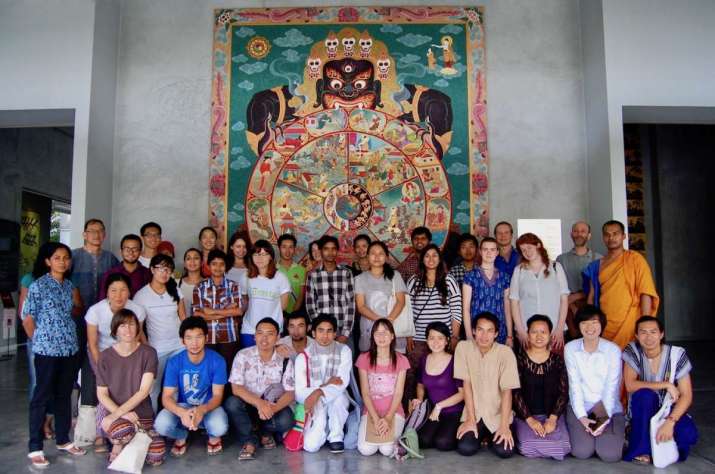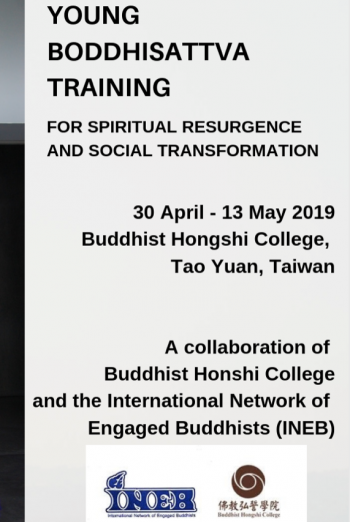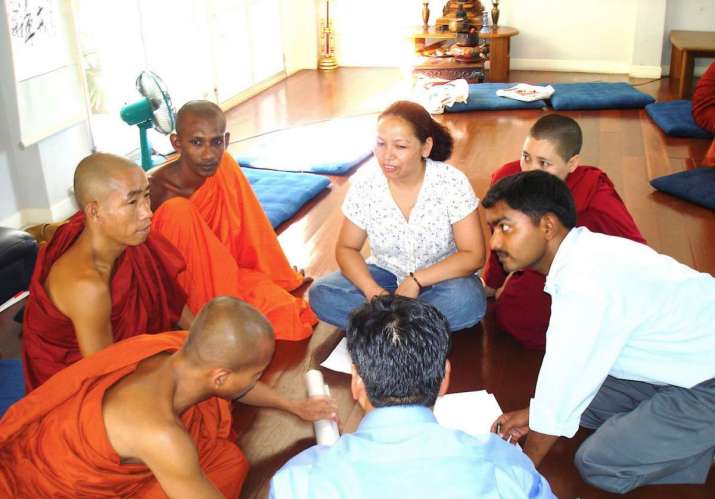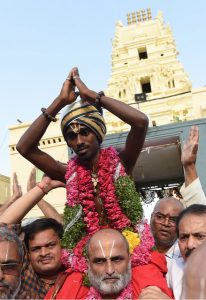
The International Network of Engaged Buddhists (INEB) and Buddhist Hongshi College have announced a new collaborative initiative in the form of a two-week training program on socially engaged Buddhism titled “Young Bodhisattva Training: For Spiritual Resurgence and Social Transformation.”
Running from 30 April–13 May at Buddhist Hongshi College in Tao Yuan, Taiwan, the training course is aimed at empowering young people to realize their potential to contribute to real change and social engagement. Through the application of ancient Buddhist teachings in the context of contemporary global issues, the unique program is intended to help 30 young Buddhists develop the self-confidence, capacity, and commitment to manifest social and spiritual transformation, and engender real and sustainable social change.
“A common phenomenon that can be observed in countries where members of INEB bodhisattvas have been operating—especially in South and Southeast Asia—is that the people have not yet achieved enduring peace and social justice,” said Bangkok-based INEB, describing the impetus behind the program. “Every country continues to be influenced by capitalism and authoritarianism from the colonial era until the recent era of globalization. The common experience shared by third-world countries is dominated by the corporate sector . . . and non-democratic or pseudo-democratic governments. These two sectors’ powerful influence adversely impacts everyone.”
The stated goals of the program include helping young people to understand the theory of engaged Buddhism so that they may develop the analytical Buddhist tools to develop and apply alternative methods of community development; bringing theory into practice through exposure to some of the finest thinkers and practitioners of socially engaged Buddhism; and strengthening the Asian network of young Buddhist activists by supporting cooperation and relationships.
“We hope to learn from and build on the success of this year’s pilot program with a view to future expansion,” INEB executive secretary and project leader Somboon Chungprampree told Buddhistdoor Global. “We plan continue the program next year and are hoping to expand the scope and potential of the project as we move forward.”
The training curriculum is based on a three-mode learning process involving a convergence of intellectual, spiritual, and physical practices. The sessions include lectures, discussions, community building, meditation, and group processes, as well exposure trips to understand how socially engaged Buddhism is being applied to address social problems in Taiwan.

INEB explained that specific outcomes on multiple levels—personal, organizational, national, and regional—would be incorporated into action plans developed during the training, reflecting worldview and attitudinal changes based on Buddhist analysis.
Although the bulk of the costs for the training course will be absorbed by Buddhist Hongshi College, INEB is still in the process of securing funding for about 10 places allocated for young Buddhists from developing countries to cover airfare and visa-related expenses totaling some US$5,500.
“We see this as a great setback, as we would not like to take this unique gift of empowerment through education away from these highly committed and dedicated youths,” noted INEB. “INEB and Buddhist Hongshi College in Taiwan have put in every bit of effort with soul and heart, as we truly care for the future of these youth, that they are able to fulfill their dreams of becoming real social change makers in their communities.”
Established in 1989 by Buddhist activist and intellectual Sulak Sivaraksa and a group of Buddhist and non-Buddhist thinkers and social activists, INEB operates as an autonomous organization under the Bangkok-based Sathirakoses-Nagapradeepa Foundation. Comprised of individual members and organizations from more than 25 countries across Asia, Australia, Europe, and North America, and operating around the core value and practice of kalyana-mitrata (Skt. spiritual friendship), INEB seeks to cultivate and promote an understanding of socially engaged Buddhism that integrates the practice of Buddhism with social action to manifest a healthy, just, and peaceful world.

“The future of humankind relies on its young generation. However, growing up in divided society makes it very difficult for them to realize their potential and positively contribute to society. A great deal of youth’s vitality is expended because of the impact of structural violence and other social and economic inequities. These conditions create disparities and instability, particularly in communities where development is imbalanced,” INEB emphasized. “This training will empower and enrich 30 youth in ancient Buddhist teachings and their applications to current global problems. As the youth come out with greater clarity about the capacity of their inner being, and their interdependent connection with the external world, they regain their innate wisdom and compassion. This recognition naturally leads to action for the well-being of all. These 30 youth will gain the potential to create real social and sustainable change in their communities.”
The application deadline for course participants is 15 March, with the selection process to take place from 16–31 March. Successful applicants will be required to cover their own airfare and visa costs.
See more
Young Bodhisattva Training Schedule 2019
Young Bodhisattva Training, Application Form 2019
Young Boddhisattva Training (Global Giving donation page)
International Network of Engaged Buddhists
INEB – International Network of Engaged Buddhists (Facebook)
Buddhist Hongshi College (Facebook)












